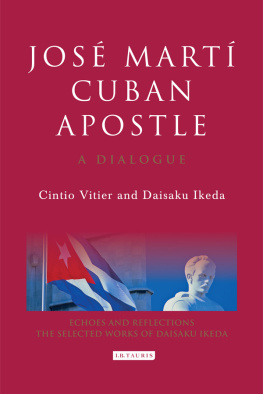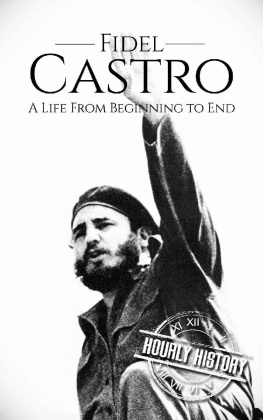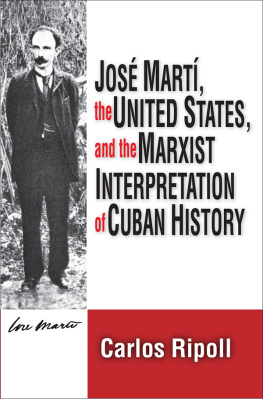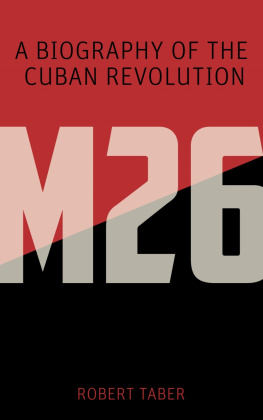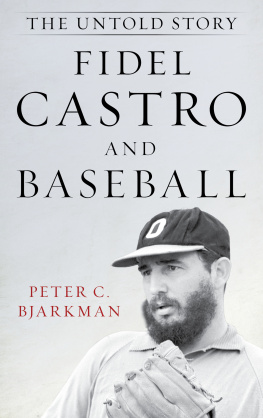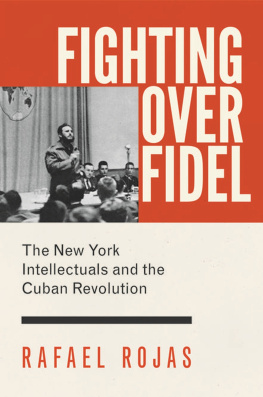Once called the wellspring of the revolution by Fidel Castro, Jos Mart (1853-1895) is revered as one of the greatest figures in the history of Cuba. Not only was he instrumental in the late nineteenth-century cause of securing Cuban independence from Spain. He is also considered one of Cubas most brilliant writers, orators and formative intellectuals, who provided inspiration to the young Fidel, Che and their fellow revolutionaries by dedicating his whole life to the goal of national political emancipation. Jos Mart suffered persecution and early imprisonment for his convictions, and in consequence is often referred to as the Cuban Apostle.
In this wide-ranging discussion of Marts life, work and influence, distinguished Cuban poet Cintio Vitier and prominent Buddhist leader Daisaku Ikeda explore their subjects understanding of non-violence; his nationalism that was also a profound openness to difference and dialogue; his spirituality; his poetical writings; and most of all his fundamental dignity, humanity and self-mastery. The book explores above all the nature of sacrifice, and the cost of relinquishing personal happiness for the sake of a great cause. The discussants examine Marts family life, including his difficult relationships with his wife Carmen Zayas Bazn and his parents, who distanced themselves from his revolutionary fervour. Comparisons are drawn between Marts ideals and Nichiren Buddhism as a source of unfailing hope and courage. As Daisaku Ikeda, follower of Nichiren, says at one point in the dialogue: Self-mastery is the hardest thing of all. But to have a spiritual nature worthy of the name, a person must overcome himself, a task that only a true optimist can accomplish. Marts perspicacity is revealed in his conviction that final victory in life is assured by such optimists. Mart, like Nichiren, had the unerring ability to turn enemies into friends. And as Cintio Vitier and Daisaku Ikeda reveal, what set Mart apart was not his thought or ideas alone but what emanated from his words and found embodiment in his actions. It was thus that a follower at the time could say of him: we dont understand him, but we are ready to die for him.
Cintio Vitier , who died in 2009 aged 88, was a celebrated Cuban poet and essayist. His poetry books include Extraeza de Estar (The Wonder of Being) Vsperas (Vespers) and Canto llano (Plain Song). Cintio Vitier won the National Prize for Literature in 1988, the 2002 Juan Rulfo Prize and the medal of the Cuban Academy of Science.
Daisaku Ikeda is the President of Soka Gakkai International, a Buddhist network with some twelve million members in over 190 countries throughout the world. He is the author of over 100 books on Buddhist themes and received the United Nations Peace Award in 1983.
ECHOES AND REFLECTIONS
THE SELECTED WORKS OF DAISAKU IKEDA
Showcasing some of the most potent and far-reaching spiritual works of our times, this major new series brings together for the first time under the banner of a single imprint twelve classic dialogues between modern spiritual master Daisaku Ikeda and a distinguished roll-call of discussants, who are uniformly thinkers of global stature and reputation. Echoes and Reflections ranges widely across the fields of religion, politics, economics, science and the arts, and in each instance puts a profound and searching new perspective on some of the most pressing issues of our age. Topics covered include: the search for worldwide social justice; the challenges posed by climate change and diminishing natural resources; the perils of religious misdirection; the urgent need for inner growth and harmony; the importance of learning and education; and, above all, the significance of the human quest for meaning and value in life.
Titles in the series:
Choose Life , Arnold Toynbee & Daisaku Ikeda
Dawn After Dark , Ren Huyghe & Daisaku Ikeda
Human Values in A Changing World , Bryan Wilson & Daisaku Ikeda
Search for A New Humanity , Josef Derbolav & Daisaku Ikeda
Before it is Too Late , Aurelio Peccei & Daisaku Ikeda
A Lifelong Quest for Peace , Linus Pauling & Daisaku Ikeda
Ode to the Grand Spirit , Chingiz Aitmatov & Daisaku Ikeda
Human Rights in the Twenty-first Century , Austregsilo de Athayde & Daisaku Ikeda
Jos Mart, Cuban Apostle , Cintio Vitier & Daisaku Ikeda
Compassionate Light in Asia , Jin Yong & Daisaku Ikeda
Global Civilization , Majid Tehranian & Daisaku Ikeda
Moral Lessons of the Twentieth Century , Mikhail Gorbachev & Daisaku Ikeda
Published in 2013 by I.B.Tauris & Co Ltd
6 Salem Road, London W2 4BU
175 Fifth Avenue, New York NY 10010
www.ibtauris.com
Copyright 2001, 2013 Cintio Vitier and Daisaku Ikeda
English translation copyright 2013 Soka Gakkai
All rights reserved. Except for brief quotations in a review, this book, or any part thereof, may not be reproduced, stored in or introduced into a retrieval system, or transmitted, in any form or by any means, electronic, mechanical, photocopying, recording or otherwise, without the prior written permission of the publisher.
ISBN: 978 1 84885 199 3
eISBN: 978 1 78672 003 0
A full CIP record for this book is available from the British Library
Typeset in Garamond by Initial Typesetting Services, Edinburgh
Foreword
by Dr Armando Hart Dvalos
Words from a Dialogue
The famous Catholic poet Jos Lezama Lima creator and outstanding figure of the Orgenes Group whose fertile influence still survives in Cuban culture said of Jos Marts fervent love of his homeland that A mystery is still with us. Julio Antonio Mella, combatant, patrician and champion of Cuban youth the highest representative of the revolutionary process of the 1920s and founder, in 1925, of the Cuban Communist party also stressed the need to investigate the ultra-democratic programme of Jos Mart. Is it possible, then, to unravel the multiple essences of the Cuban Apostle?
This dialogue of great wisdom between Daisaku Ikeda and Cintio Vitier brilliantly reveals the uniqueness of Jos Mart and the basic references for a better definition of him in the twenty-first century. It relies on his infinite capacity of commitment to human causes, to the universal sense and reach of his life and in having found practical means to help these vast ideals come to fruition, and it leaves everlasting lessons. This combination is exceptional in history. From this comes Marts relevance in the century that has just begun.
The history of this singular work started in the 1980s when relations began with Mr Ikeda, President of Soka Gakkai International, through cultural exchanges that were established with Min-On, a notable institution that organized concerts and presentations in Japan of important Cuban artists and the visits of the famed Cuban National Ballet. A rich dialogue also began with President Fidel Castro, who was awarded the Honoris Causa Doctorate of Soka University in Japan.
This visit of Mr Ikeda to Havana occurred in June of 1996. From the beginning, when I accompanied Mr Ikeda on a tour of the city from the airport, the important visitor told me of his interest in knowing representative figures of Cuban history and culture, pointing to Jos Mart the quintessential personality in all of Latin America. He expressed interest in initiating contact with Cuban thinkers and requested a dialogue like the ones he has had with celebrities of other countries and cultures with the purpose of delving into the indisputable genius of Jos Mart, the Cuban Apostle.
His suggestion interested me immediately. I thought of Cintio Vitier as the ideal person for this noble effort, a man of elevated culture and Mart expert par excellence, and this was my suggestion to Mr Ikeda. I soon got in touch with Cintio about this request. He accepted with great interest and enthusiasm. His proverbial generosity and permanent vocation to spread Marts ideas and the history of Cuba also contributed to his acceptance. Mr Ikeda invited us to visit Japan, where we were treated kindly and were able to meet excellent persons and deepen our relations.

